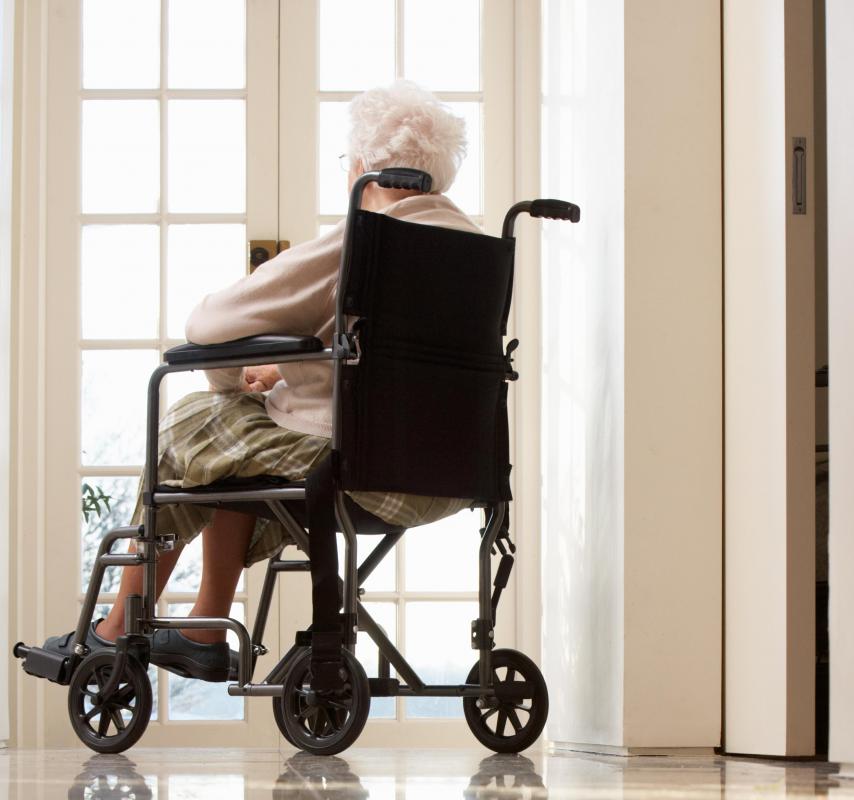At WiseGEEK, we're committed to delivering accurate, trustworthy information. Our expert-authored content is rigorously fact-checked and sourced from credible authorities. Discover how we uphold the highest standards in providing you with reliable knowledge.
What is Psychiatric Nursing?
Psychiatric nursing, also sometimes called mental health nursing, is a branch of the nursing profession which revolves around caring for people with mental illness, psychological disorders, and emotional distress. People at all stages of life can be cared for by psychiatric nurses, although some nurses choose to specialize in areas of particular interest, such as caring for adolescents or dealing with geriatric patients. Employment prospects in psychiatric nursing are quite varied, and the rates of compensation are very diverse, ranging from well paid nurses in private institutions to staff at government funded mental health clinics.
In order to become a psychiatric nurse, someone must first attend nursing school, ideally taking courses in psychology and psychiatry and taking advantage of practicum hours to work with mentally ill patients. Psychiatric nursing certifications usually involve training in specific mental health topics such as psychiatric medications, counseling, and psychology after nursing school is completed. Students also learn about establishing good patient relationships, as the relationship between care provider and patient is especially important in treatment plans for mental illness.

Nurses trained in this field can recognize the signs of psychological disorders, and they may work to prevent the onset of severe disorders. They can also develop treatment plans for patients, and work with other mental health professionals to attend to the needs of the patient. Since some cases of mental illness are also accompanied with physical problems, which can range from dental issues due to neglect to physical impairments caused by brain damage, psychiatric nursing also involves routine nursing tasks such as administering medication and assisting patients. The overall goal is maintaining a high quality of life for the patient, and promoting general health, not just sound mental health.

In addition to caring for individual patients, psychiatric nurses can also help to lead group counseling sessions. They may also choose to work on developing sound healthcare policies which promote maintenance of mental health. Psychiatric nursing is a diverse branch of the nursing field, and the expertise of a psychiatric nurse can be extremely valuable when discussing public health initiatives, community outreach programs, and other healthcare endeavors.

Although board certification is not necessarily required for people who wish to work in psychiatric nursing, it is highly recommended. Board certification requires passing a special exam, and candidates may also need to submit transcripts, letters of recommendation, and other supporting materials. Board certified psychiatric nurses are more employable, and they may be eligible for senior positions and better rates of pay.
AS FEATURED ON:
AS FEATURED ON:

















Discussion Comments
I have several friends who are doing nursing at university right now (although not in the United States) and they tell me that one of the job placements is required to be at a psychiatric ward. Most of them were looking forward to it, although I think one was quite nervous and I don't blame her.
It would make me nervous, even if it was a job helping people.
But I think it is definitely good to let nurses in training try all the different kinds of jobs they might be doing in the future in order to take away any illusions they might have about what it is really like to care for people.
@bythewell - You're right, it can be fascinating, but it can also be heart breaking. Often there is no "cure" for a mental illness. All that can be done is to try and treat the symptoms. In fact, I would say it was a rare patient who truly got better in an institution.
And there are far fewer places than there are people who need them, due to most countries not putting enough funding into mental health. Which means that most of the cases a nurse will see, will be the most severe in the community.
Either that, or they will have a job at a private hospital which treats the children of rich folk for depression.
Either way, it can be very depressing.
Psychiatric nursing sounds like it would be an absolutely fascinating profession. Being able to help people while they are at a very vulnerable stage in their lives should be an honor.
I imagine when most people think of a psychiatric nurse, they think of Nurse Ratched from One Flew Over the Cuckoos Nest. And I imagine back in the days when mental asylums were run like prisons that may have been more the norm than not.
But I like to think there are a lot more places now where people can actually get help for their mental illnesses, and watching them come to grips with this kind of thing would be very interesting to me.
Post your comments